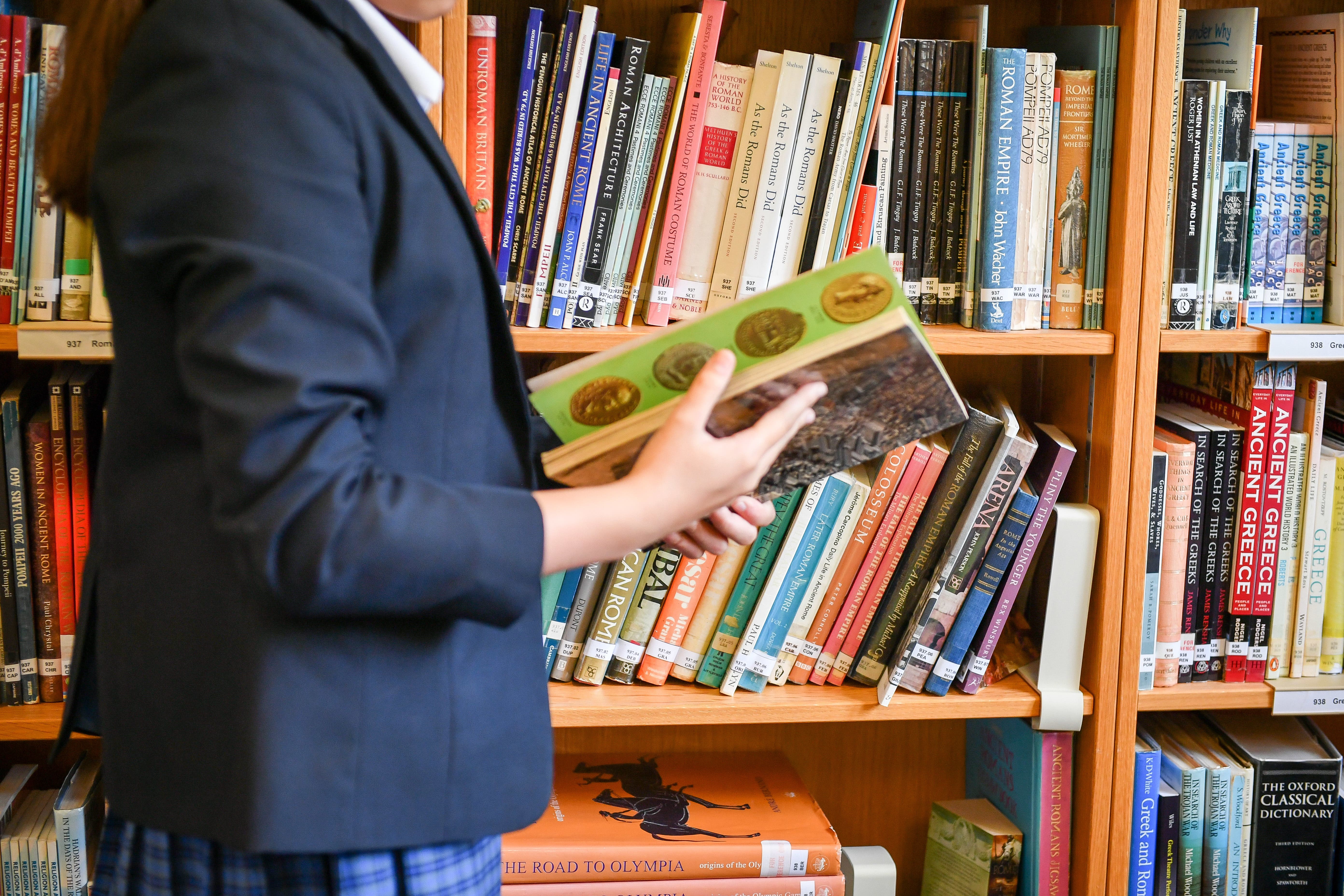Children’s reading at ‘crisis’ point as enjoyment among pupils plummets – report
The National Literacy Trust is calling on the Government to form a reading taskforce and action plan to address record low levels of enjoyment.

Your support helps us to tell the story
From reproductive rights to climate change to Big Tech, The Independent is on the ground when the story is developing. Whether it's investigating the financials of Elon Musk's pro-Trump PAC or producing our latest documentary, 'The A Word', which shines a light on the American women fighting for reproductive rights, we know how important it is to parse out the facts from the messaging.
At such a critical moment in US history, we need reporters on the ground. Your donation allows us to keep sending journalists to speak to both sides of the story.
The Independent is trusted by Americans across the entire political spectrum. And unlike many other quality news outlets, we choose not to lock Americans out of our reporting and analysis with paywalls. We believe quality journalism should be available to everyone, paid for by those who can afford it.
Your support makes all the difference.Children’s reading is at “crisis” point as the number enjoying it in their free time has plummeted to just one in three, a report suggests.
The number of young people who say they enjoy reading has fallen significantly in the past year – especially among boys, according to research by the National Literacy Trust (NLT) charity.
Only around a third (34.6%) of children and young people aged between eight and 18 said they enjoyed reading in their free time in 2024, compared with 43.4% in 2023.
Perhaps a packed curriculum, high academic expectations, and the perception of a challenging future all contribute to children having less time for reading for enjoyment and less mental space to do it
This is the “lowest level” recorded since the charity began the survey in 2005, according to the report.
The gender gap among children who say they take pleasure in reading has widened significantly this year as the number of boys who report enjoying reading has dropped, the survey found.
Fewer than three in 10 (28.2%) boys aged between eight and 18 said they enjoy reading in their free time, compared with two in five (40.5%) girls – a gap of 12.3 percentage points.
Last year, two in five (40.5%) boys said they enjoyed reading in their free time, compared with 45.3% girls – a gap of 4.8 percentage points.
The report said it was “a particular crisis” for secondary school pupils as the fall in reading enjoyment was more pronounced for young people aged 11 to 14 and 14 to 16 than for those aged eight to 11.
Overall, 76,131 children and young people aged five to 18 from 405 schools across the UK were surveyed by the charity between January and March 2024.
Only one in five (20.5%) children and young people aged between eight and 18 said they read something daily in their free time in 2024, compared with 28.0% in 2023.
The report said it was the “lowest daily reading level” since the survey began nearly two decades ago.
With children and young people’s enjoyment of reading at an all-time low, and high numbers leaving primary and secondary school without the reading skills they need to thrive, the futures of a generation are being put at risk
Fewer than one in five (17.5%) boys said they read daily in their spare time, compared with 23.2% of girls.
“The declining levels of reading enjoyment and reading frequency are, frankly, shocking and dispiriting,” the report concluded.
It added: “Perhaps a packed curriculum, high academic expectations, and the perception of a challenging future all contribute to children having less time for reading for enjoyment and less mental space to do it.
“It’s likely, too, that the recent pandemic and the ongoing cost-of-living crisis have exacerbated these challenges, with many children and young people struggling to access high-quality reading materials.”
The charity is calling on the Government to urgently form a reading taskforce and action plan with multi-sector partners to address declining rates of reading enjoyment.
The Government’s curriculum and assessment review should prioritise reading for pleasure alongside the skills that are vital in the development of confident, motivated readers, it added.
Jonathan Douglas, chief executive of the NLT, said: “With children and young people’s enjoyment of reading at an all-time low, and high numbers leaving primary and secondary school without the reading skills they need to thrive, the futures of a generation are being put at risk.
“So many families, schools, libraries, charities, publishers, businesses, and more are already inspiring children’s reading in such diverse and innovative ways.
“But to truly make reading for pleasure a national priority, we are urging the Government to form a reading taskforce and action plan with multi-sector partners – amplifying our collective reach and influence, strengthening our impact and reimagining solutions to this complex crisis.”